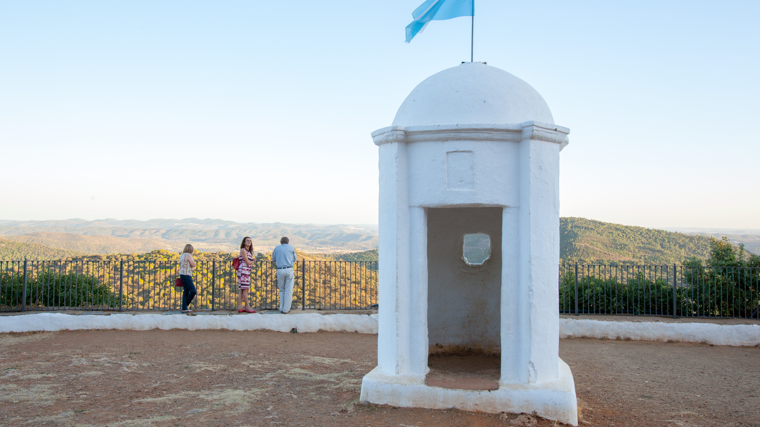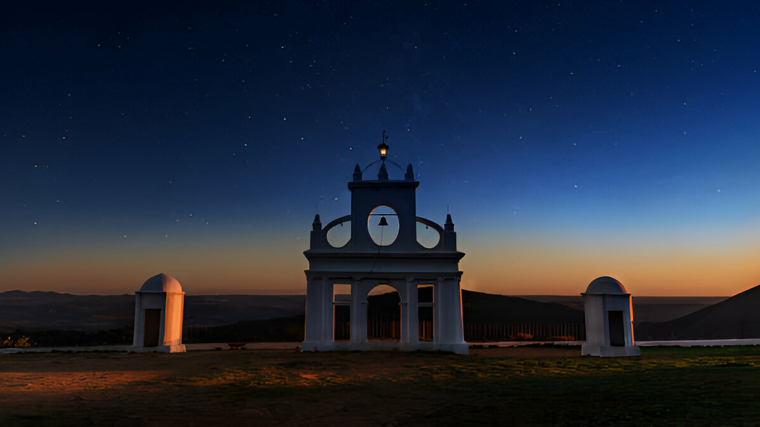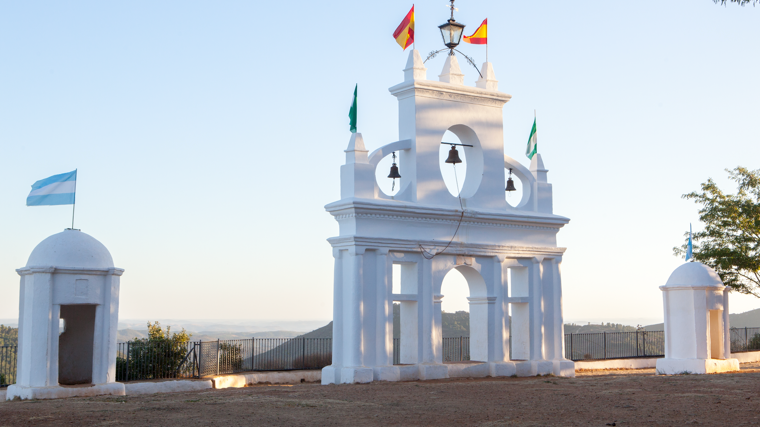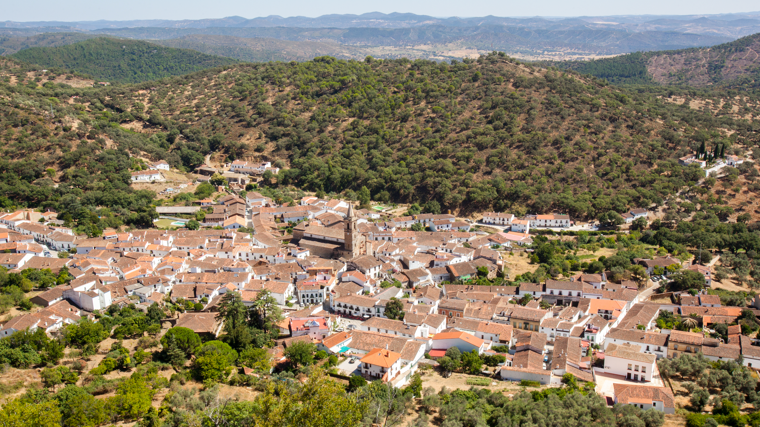The magical mountain hidden in the north of Huelva

In the north of the province of Huelva, above the municipality of Alájar, lies the most magical place in the Sierra de Aracena, a limestone massif where history and spirituality intertwine. It is said that its location responds to ancient geodesic alignments connected to other sacred points on the peninsula, thus giving off a special energy. Crowned by the chapel of Our Lady Queen of the Angels , it has also become one of the most important pilgrimage centers in Andalusia, celebrating its pilgrimage on September 8th and whose festival highlights the craft market.
Considered one of the best viewpoints in the area, Peña de Arias Montano owes its name to Benito Arias Montano , royal librarian at the monastery of El Escorial during the reign of Philip II. He also participated in the publication of the monumental Polyglot Library of Antwerp, becoming one of the most brilliant minds of his time. In 1553, he decided to leave the court and retire to this corner of the Huelva mountains, which centuries earlier had welcomed Saint Victor, a 5th-century hermit.
 The Peña de Arias Montano is also a wonderful viewpoint.
tourism in Andalusia
The Peña de Arias Montano is also a wonderful viewpoint.
tourism in Andalusia
Arias Montano dedicated his time to meditation and sought to recreate here the vision that Flemish artists had of the retreat of Saint Jerome, a figure widely followed in 16th-century Europe. He ultimately transformed the site into a Renaissance retreat, rebuilt the hermitage, and discovered and landscaped an ancient spring, the Fuente de la Peña, in its surroundings, as well as an access path with a leafy avenue inspired by Italian Mannerist gardens. Legend has it that he made several discoveries related to the magic of the place, which he hid in the library of El Escorial.
 It is said that its location responds to ancient geodesic alignments connected with other sacred points
Huelva tourism
It is said that its location responds to ancient geodesic alignments connected with other sacred points
Huelva tourism
The original chapel dated from the 14th and 15th centuries, but was later expanded by Arias Montano. Inside, the sanctuary has the typical structure of Mudejar temples in the area, with a central nave divided by three transverse arches. The presbytery has a square floor plan and is covered with a ribbed vault. Noteworthy are the tiling on the walls, made by the Mensaque factory in Seville , as well as the frescoes that depict the beginning and end of the Virgin. Outside, the neoclassical bell gable is striking, accompanied by circular, vaulted pilasters. Here you can also see the Arco de los Bodas (Arch of the Bride and Groom), where, according to legend, every couple who crosses it ends up getting married.
 Here is also the Arch of the Bride and Groom, through which couples pass to get married.
tourism in Andalusia
Here is also the Arch of the Bride and Groom, through which couples pass to get married.
tourism in Andalusia
In the depths of La Peña, the water has formed a series of cavities lined with stalactites and stalagmites, lakes, and rocks of the most diverse shapes. This set of cavities is known as the Caves of Las Lapas , and each has its own name, such as the Cave of the Virgin, the Cave of Verja, La Peña (where Bronze Age remains have been found—although the few studies carried out conclude that there were earlier settlements), the Dark Palace, or the King's Chair (one of the most significant geological sites where the formation of the most spectacular travertines can be observed). Only the last two can be visited, and it is an activity well worth the effort.
 View of the town of Alájar from the Peña de Arias Montano
tourism in Andalusia
View of the town of Alájar from the Peña de Arias Montano
tourism in Andalusia
A visit to this place is rounded off with a tour of Alájar, a village of whitewashed houses whose old town has been declared a Historic-Artistic Site. A stroll through its cobblestone streets allows you to discover its oldest part, dating back to the Moorish period, admire the typical architecture of the area with whitewashed houses and Roman tiled gabled roofs, and visit the Church of San Marcos, a Baroque-style temple whose ecclesiastical tower stands out as the tallest in the province of Huelva.
ABC.es





